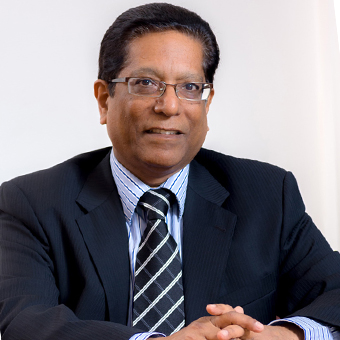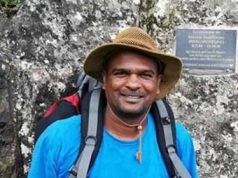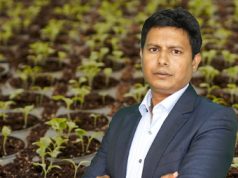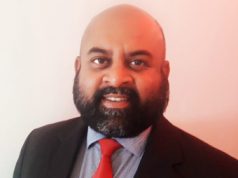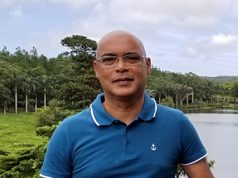The Covid-19 pandemic has scaled down the economy all over the world. As countries start re-opening their business activities, the big question is whether the economy will ever be able to rebound to its previous level, and if so, how long will this take. But perhaps an even more important question is whether it should at all return to the same level.
The forced confinement has given rise to a new paradigm, unthinkable only a few months earlier. We have seen the possibility of a planet able to breathe again, with car and factory pollution almost halted, with shopping cut to the bare minimum, and human beings taking shelter in their homes, with minimum distractions except TV and Internet. Work and education from home have become a reality, family and friends find time for bonding, internally, as well as externally through social media, and people show more compassion in the face of imminent danger.
OPEC has cut down its oil production to an unprecedented level, and the air gets so pure that Delhi citizens are able to see the Himalaya for the first time since a full generation. It would have been an idyllic situation if only it were sustainable, but all economists will for once agree that this can never be the case. Production and consumption will inevitably have to resume, and the infernal machinery will be running full steam, oblivious of its consequences to the planet.
For once we have stared at an apocalyptic situation fully in the face. The virus outbreak is perhaps a God-sent warning of what awaits humanity if nothing is done to stop the frenzy of an economic growth that depends on hyper-consumerism and pervasive globalisation, with all the waste that it generates, and a system where all the wealth created flows to a chosen few, leaving the poor as desperate as ever.
Wealth creation and accumulation (quite often expropriation as well) have always been a central preoccupation of mankind ever since the dawn of civilisation. However, the unprecedented economic growth, which started with the industrial revolution around 1750, represents but a mere 0.1%, just a blink, of total human economic history. Will this be a mere accident of history or will it be just another small step in the evolution of mankind? As pointed out by Eric Beinhocker in ‘The Origin of Wealth’,
The past two centuries have freed billions from a Hobbesian existence of toil, hunger and disease. The next century could free billions more. But such a growth is not without costs, ranging from great disruptions in age-old patterns of life to environmental damage.
Covid-19 has forced us into introspection as to the type of society that we wish to leave to our future generations. In an insightful book, ‘the Price of Civilisation’, written in the aftermath of the 2008 financial crisis, Jeffrey Sachs warns against the dangers of extremist positions in all human endeavours, and drawing inspiration from the ancient wisdoms of Buddha and Aristotle, professes for a middle way in everything we do:
The relentless drumbeat of consumerism into every corner of our lives has led to extreme short-sightedness, consumer addictions, and the shrivelling of compassion. When we are distracted, we allow the lobbyists to run away with power that rightfully belongs to the citizenry. As individuals, we need to regain the balance of our own lives between work and leisure, saving and consumption, self-interest and compassion, individualism and citizenship. As a society, we need to establish the right “relationship of markets, politics, and civil ‘society (through democratic institutions) to address the complex challenges of the twenty-first century.
Jeffrey Sachs, known for his dedication to the economics of poverty (vide his book ‘The End of Poverty’), and for his contribution to the development of the Millennium Goals, recommends the achievement of a new mindfulness regarding the needs of individuals and of society, thereby discovering the paths that lead to human well-being. According to Buddha, Mindfulness is one of the eight steps on the way to self-awakening, ‘an alertness and quiet contemplation of our circumstances, putting aside greed and distress’. Sachs identifies eight dimensions of mindfulness that can impact on our lives:
- Mindfulness of self: personal moderation to escape mass consumerism
- Mindfulness of work: the balancing of work and leisure
- Mindfulness of knowledge: the cultivation of education
- Mindfulness of others: the exercise of compassion and cooperation
- Mindfulness of nature: the conservation of the world’s ecosystems
- Mindfulness of the future: the responsibility to save for the future
- Mindfulness of politics: the cultivation of public deliberation and shared values for collective action through political institutionsMindfulness of the world: the acceptance of diversity as a path to peace”
The choices that we make in the wake of Covid-19 will determine the world of tomorrow. We have seen over a stretch of a few weeks or months, that we can live our lives differently. The lessons we have learnt can help us forge a better world and save our civilisation from extinction. We need to rebuild our social capital and rethink our economic models to fit with a mindful society so as to create enduring prosperity for all.
Bringing this model of society into local context, we can ponder on the fate of the squatters who, all of a sudden, see themselves deprived of a shelter. A humane approach that may be considered by policy makers would be the creation of agricultural villages, which, not only will provide social housing but also the dignity of earning a living. Adopting agro-ecological modes of production will reduce reliance on imported agro-chemicals and genetically modified seeds, which incidentally was a cause of failure of some of the ‘Millenium Villages Project’ conceived and implemented in Sub-Saharan Africa by Jeffrey Sachs and the Earth Institute (as compared, for example with the indigenously developed ‘Soils, Food and Healthy Communities’ movement in Malawi).
Equally important, changing the cultural environment to which children are exposed, quite often leading to delinquency, can break the vicious cycle of poverty in which they are trapped. This will imply access to decent healthcare and education as well as community development that nurtures the values of self-help and hard work, cooperation and solidarity. By combining economic activity with social safety nets, there is a greater chance of winning political support and adhesion from all factions of our fragmented society. Imbued in this approach is an implicit moral logic which, again citing from Eric Beinhocker,
…has the benefit of appealing to our strong reciprocity sense of fairness. Hard work and moral rectitude would be rewarded…, but sloth would not, and bad luck would be treated with generosity.
Making this transition to a new world order is certainly not going to be easy. We have become so attuned to the western values and standard of living that we are not ready to forsake the comforts we presently enjoy or aspire to, regardless of the consequences to the planet and to the legacy we leave to future generations. It is also unlikely that we can halt or negate the tremendous scientific and technological achievements which represent the hallmarks of our civilisation.
Nonetheless COVID-19 and forced confinements have imposed on us an awakening to new realities. All of a sudden, we have come to realise the fragility of the ecosystem on which we depend for our daily subsistence. We can only hope that before another calamity strikes again, whether natural or man-made, we all agree to declare war on the status quo. While there are lots of speculations regarding the new growth curves that will define the new normal, I believe this is the time rather to take a new turn in human development, embracing all the social and environmental challenges which hyper consumerism and globalization have engendered. As Jeffrey Sachs, we need to draw inspiration from the collective and cumulative wisdoms of humanity and learn how to temper the excesses of unbridled capitalism. Beyond wealth creation, we should seek sustainable and inclusive development, as well as prosperity, happiness and harmony in a mindful society.


